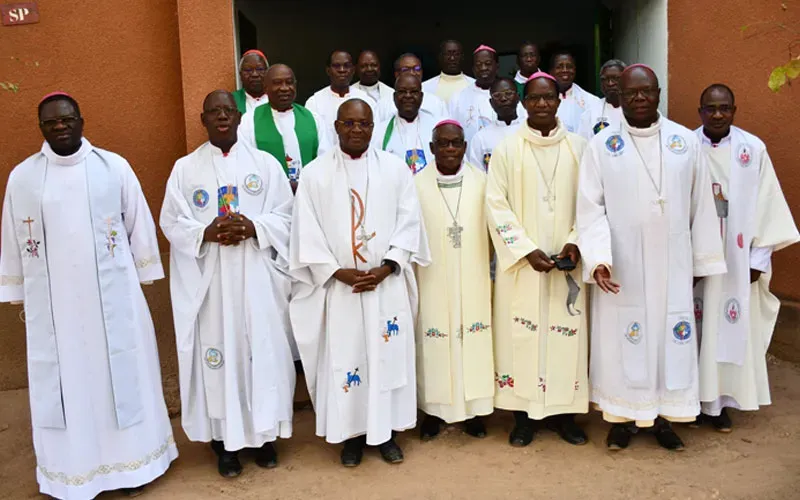They also describe the protests as “understandable because they reflect a refusal to passively watch our country disintegrate and large-scale murders become commonplace.”
The Catholic Church leaders however urge the Burkinabe to act with "prudence, discernment and moderation” while picketing.
They further urge the government to communicate "courageously and transparently" about the country’s security situation "in order to create the unity desired by all."
“The quality of the government's communication will help to calm hearts and minds, and will help to better understand the complexity of the situation, which effectively requires this sacred union,” CEBN members say in their November 20 statement.
“That is why we want to invite you to safeguard the essential and to prioritize the best interests of the nation, despite the legitimate indignation that one may feel,” they say.
(Story continues below)
While extending their sympathy to all the Burkinabe who lost their loved ones in the November 14 attack, CEBN members pray for the eternal rest of the soldiers who died on the battlefield.
"May he welcome them into his peace and, through the closeness of the whole Nation, console the widows and orphans, grant a speedy recovery to the wounded and bring home those who are displaced,” they say.
The Catholic Bishops also call on the citizens of the West African nation “not to lose hope for there is still a common good that brings us together (which is our reason for living) and for which we must not stop fighting.”
“We must therefore remain hopeful because our common history teaches us that in the critical situations in which our country has stumbled, our predecessors have always been able to draw strength from our common heritage to unite in order to build it and meet the challenges of their time,” the Catholic Bishops add.
Addressing themselves to Christians in Burkina Faso, CEBN members say there is need to “intensify their prayers to implore God's help for our nation."
"Let each one pray according to his or her spiritual sensitivity to obtain from God the end of the scourge of terrorism," they say, and invite the Catholic faithful to “participate more frequently in the Eucharist, especially on Sundays and feast days.”
The Catholic Bishops recommend that the “Our Father - Ave Maria - the prayer to Saint Joseph or the prayer for Burkina Faso and Gloria be said at the end of Holy Mass for peace in Burkina Faso."
CEBN members also recommend “Eucharistic adoration and the Rosary as well as novenas.”
“May the Blessed Virgin Mary, Queen of Peace, and St. Joseph, Protector of the Universal Church, accompany with their powerful intercession our country in its quest for reconciliation, justice and true and lasting peace,” they implore.
Jude Atemanke is a Cameroonian journalist with a passion for Catholic Church communication. He holds a Bachelor’s Degree in Journalism and Mass Communication from the University of Buea in Cameroon. Currently, Jude serves as a journalist for ACI Africa.








